This blog was written by Stephen Acquah, Research Assistant; Samuel Asare, Senior Research Manager; and Lucy Heady, CEO, Education Sub Saharan Africa.
Introduction
Researchers with the right skills and expertise can produce robust, trustworthy and reliable research evidence that can positively influence education policy decisions and investments. Providing capacity building opportunities for Africa-based Early Childhood Development (ECD) and Foundational Learning (FL) researchers is also key to ensuring holistic development of children.
As part of a project delivered by Education Sub Saharan Africa (ESSA) and the Research for Equitable Access and Learning (REAL) Centre at the University of Cambridge, funded by the Bill & Melinda Gates Foundation (grant number INV-043649) and the Conrad N. Hilton Foundation (grant number 28192), we engaged African-based ECD and FL researchers to understand better their research priorities and capacity strengthening needs. This consultation was undertaken to ensure that any professional development provided during implementation of the two projects was responding to the genuine demands of the community of researchers. The results (as captured in this report) showed the need for capacity building, including training in grant writing, research methodologies, publishing journal articles, writing policy briefs, among others, as high priorities. Similar priority areas were highlighted in the report on the situational analysis on the state of the education research field in Africa, as part of the Enhancing Education Research in Africa (EERA) project.
To start responding to these needs, ESSA and the REAL Centre hosted two grant-writing workshops in June and July 2024 (in Kenya and Ghana, respectively). This involved researching and sourcing organisations that could deliver this training. This blog highlights what we learned about provision of capacity strengthening opportunities that meet the needs of researchers. We highlight the limited number and expensive nature of capacity building from private organisations and the need to support universities to provide more support for researchers.
Strengthening African universities to provide capacity building for researchers
Universities in Africa provide capacity building for researchers as part of their every-day role. A core part of their mission is to support early career researchers through mentorship and training. However, they lack resources, with national governments only providing an extremely small amount of funding to research, and external funding more often directed at think tanks, as highlighted by Professor Tassew Woldehanna – the President of Addis Ababa University (see this report for more information).
With more financial support, universities would be well-placed to enhance the capacity of researchers. There is also potential for universities to make more use of South-South partnerships, as well as existing experience of North-South partnerships, drawing on expertise and resources from partners to support researchers. To be effective, universities require longer-term commitments to allow partnerships to develop over time.
One successful model of professional development for researchers in Africa, rooted in strong partnerships with universities, is the Consortium for Advanced Research Training in Africa (CARTA) programme led by the African Population and Health Research Centre (APHRC) and the University of the Witwatersrand (Wits), South Africa. CARTA is a large-scale programme coordinated between eight African universities, four Africa-based research centres, and eight non-African partners, with funding from a large number of international donors. It provides:
- Capacity building in research, curriculum design, PhD training, pedagogical training, and technical training.
- Mentorship, both formal and informal.
- Funding of travel costs, monthly stipends, funds for formation of new research collaborations and partnerships, funds for development of pilot projects, funds for training opportunities on specific research skills, and international conference attendance.
Currently CARTA is focused on public and population health, but it is a model that could be translated to the field of education. In providing such training, it is also helpful to consider what type of support can be provided through general research skills support (regardless of thematic area – whether in health or education, for example), and where specific support is needed (for example, related to ECD or FLN).
As cost and lack of awareness of such training opportunities can be a barrier to access for many education researchers, ESSA and the REAL Centre collaborated to secure a limited provision at no cost to researchers and promoted this through our networks to ensure high visibility.
When we decided to provide grant proposal writing workshops (identified by the ECD and FL researchers as their top priority), we used our own networks and those of our projects’ Advisory Group to find potential organisations to provide training. In total, we found just a handful of organisations with expertise in running grant writing workshops for African researchers from diverse disciplines hence we invited these to submit proposals to run the workshops. The search was not extensive therefore there may be more organisations. If you know of any of such organisations, please get in touch through the contact information provided at the end of this document.
Opportunities to access professional development now
For researchers looking for professional development opportunities beyond what their university currently offers, we share here the examples of the providers we found during our research that offer open access or open applications to access training in grant-writing, communications and publishing in journals, all of which have been highlighted as priority needs during our consultations. None of these opportunities have a specific focus on education or even social sciences more broadly but they are all free or low-cost to individuals:
- The Leaders of Africa Institute offers a range of capacity building programmes designed to empower African researchers with advanced skills and knowledge. These include specialised trainings in research communication, research methods, and grant writing.
- Ubuntu Net Alliance offers courses that target academics, researchers, and students in East and Southern Africa. The Utafiti Africa portal provides research funding opportunities available to African researchers and on-demand training videos on seeking funding, grant management, and research project management.
- Information Training and Outreach Centre for Africa (ITOCA) provides capacity development programmes in Information Communication and Technology, research and development, project management, monitoring and evaluation, and knowledge management and exchange.
- Mawazo Learning Exchange provides a unique liberal arts style approach to professional development through short, intensive, online courses covering a range of academic and professional skills, including academic writing and publishing, grant writing, budgeting and financial management, science communication, policy engagement, leadership and career planning.
- INASP has over 30 years of experience in designing and delivering professional development programmes for researchers, academics and university professionals across Africa. Online courses in research writing and proposal writing have trained over 28,000 researchers from 130 countries. For example, recent Mastering Grant Proposal Writing course was completed by more than 1,000 researchers. They leverage both in-person and online learning platforms to support Southern researchers and academics in their quest to advance locally generated knowledge and solutions. Their AuthorAID programme brings researchers together to learn and share knowledge. Their online “journal clubs” allow researchers to connect with and learn from their peers, while their mentoring and collaborationplatform assists early career researchers to make connections to experienced colleagues and build their own network.
There are also organisations that offer higher-intensity and more tailored training for researchers in education and the social sciences. These opportunities are smaller-scale and are available only periodically, however they are open for individual researchers to apply so those interested should check the websites regularly:
- The African Fellows in Education Programme. The programme aims to improve education decision-making through supporting fellows to develop and advocate for quality research that is locally relevant and robust, putting evidence at the heart of education policy in Africa. It involves exchange programmes, training in research methodologies, writing of policy briefs, opportunities to present at international conferences, amongst others.
- The Council for the Development of Social Science Research in Africa (CODESRIA) provides initiatives targeting capacity building skills for doctoral students and early career academics in African universities.
Conclusion
We call on African governments, funders and development partners to support the training needs identified by Africa-based researchers through free or subsidised opportunities in relevant organisations to strengthen their skills, connect with peers, advance their careers, and support early career researchers in strengthening education research in the region. We further urge partners to invest in local expertise and university-centred models of professional development, ensuring that African-led research shapes the future of early learning and childhood development on the continent.
Contact
For further information, please contact ESSA.

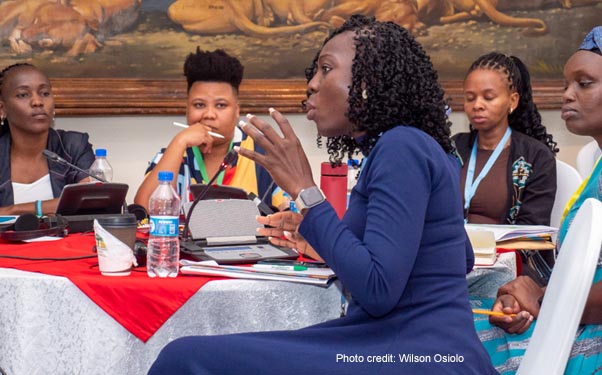
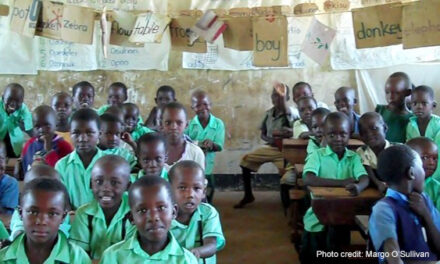
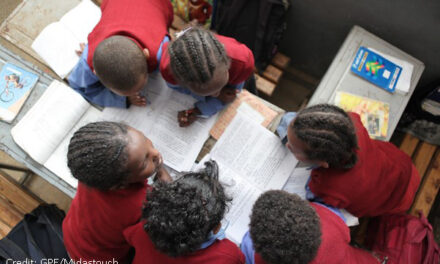
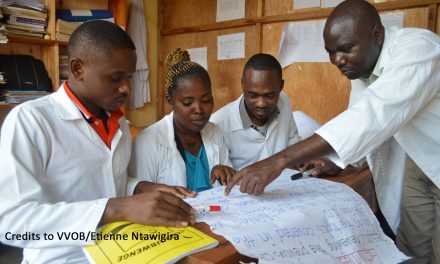
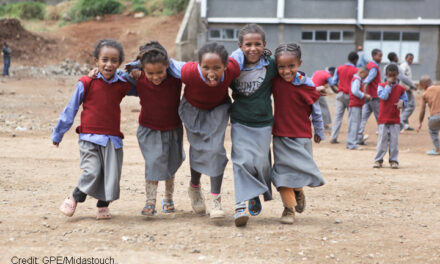
Nice report. impressive and insightful. Weldone!